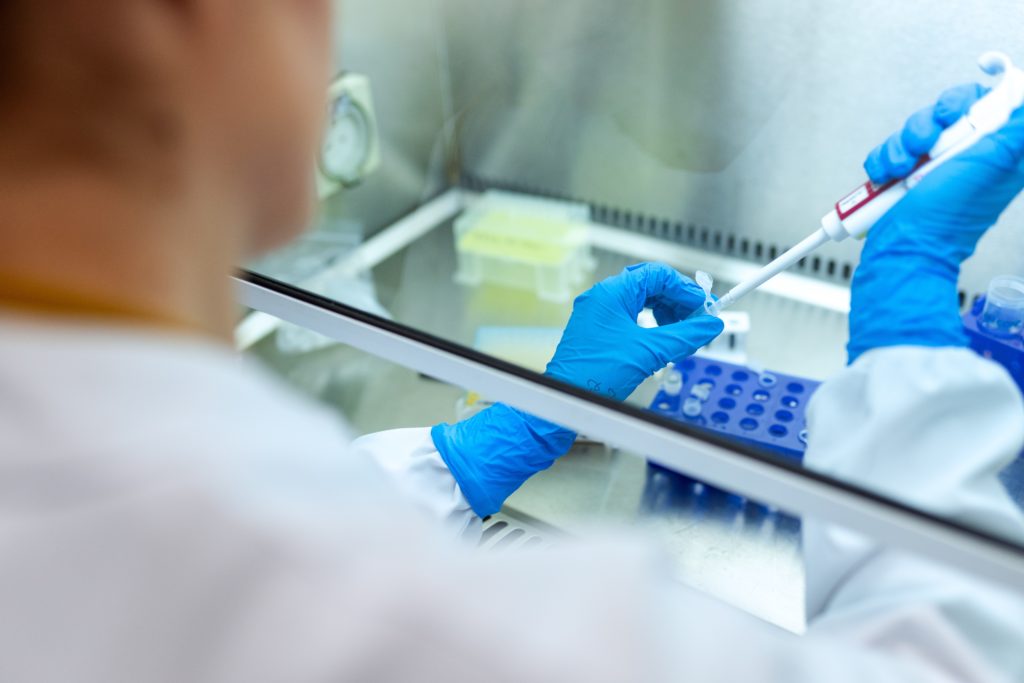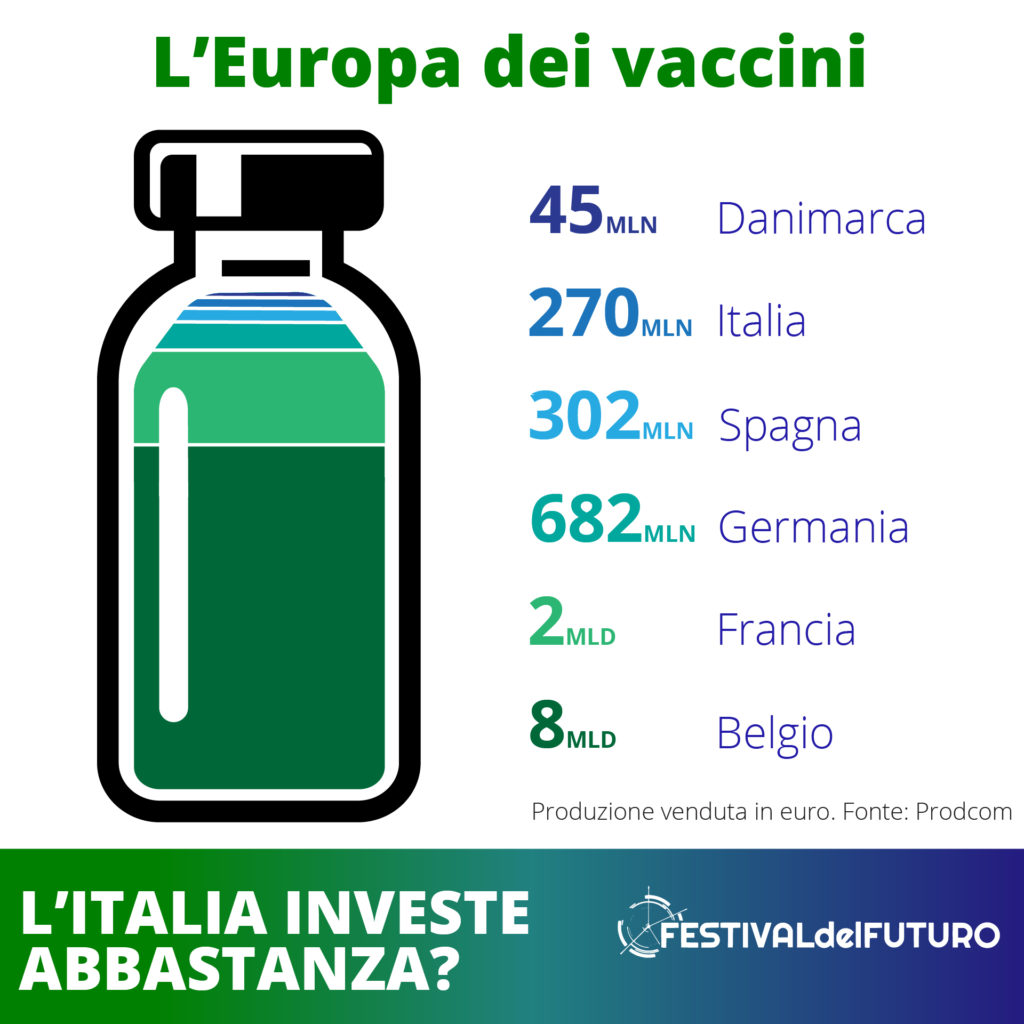
The future of the world passes through i vaccines: if we will be able to allow a true return to normal, it will depend on them. Vaccinating to get out of the pandemic earlier has become a competitive factor in restarting the engines of economies. The road is not short and the goal is not clear to everyone, not even to scientists. But at the state of the art we can and must ask ourselves some questions: why Italy, despite the pharmaceutical sector being very important in some industrial districts, has stopped producing vaccines and investing in research? Would producing them give our country a better chance of getting out of the pandemic faster? What future awaits us, also in light of the recent one setback to the Italian vaccine ReiThera? We talked about it with Gilberto Turati, full professor of Finance at the Catholic University of the Sacred Heart and expert in health policy and economics. Let's start with a fact about all of them: second Eurostat, the largest European vaccine manufacturer is the Belgium (for about half of the market value), followed at a distance (with a little more than a tenth of the market value) by France. Italy in this sector it plays a marginal role (just over one cent of the market value).
So why Belgium and not others? According to Turati “there seem to be three factors behind this specialization. First: the development of important relationships between research, the development of new knowledge, the work that is done in universities, and the production phase. Second: the creation of a favorable environment for the development of these relationships, through the definition of tax advantages for companies that reinvest their profits in R&D expenses. Third: the logistics. It is not enough to produce, you also need to be able to connect quickly and at low cost with the whole world. In Belgium there are good connections with all European countries given the centrality of Brussels ».
Vaccines: the future that awaits us
For Turati, however, something is also moving in Italy. "I am thinking - argues the economist - in particular of the role that Milan could have, where, in the area of the former Expo, a life sciences district is developing, the MIND, the Milan Innovation District and the Human Technopole". According to the professor, the mission is clear: to develop interdisciplinary studies to improve the well-being and health of people, also through personalized treatments. It is one of the few clearly future-oriented initiatives, of which very little is said but which is moving forward. Milan is an important square: there are universities that occupy prominent positions in international rankings and a great entrepreneurial tradition, there are railway and airport hubs. And the talent of Italian researchers is recognized all over the world.

The ReiThera case
Before the stop by the Court of Auditors - which defined the Invitalia financing as “illegitimate” - Italy was already developing its own vaccination solution, through ReiThera, a company of Lazio district, one of the two largest in Italy together with the Lombard one. Turati explains that «the vaccine that is being tested has obtained the authorization for phase two of the experimentation from AIFA. Before the rejection of part of the public funding by the Court of Auditors, an authorization was expected for September 2021 and an annual production capacity of 100 million doses per year. Now it becomes difficult to make predictions ». Furthermore, «the European Union has so far secured 2.3 billion doses, to have a comparison number. The doses of ReiThera would be enough for us, then. In reality, there is also a second candidate in the testing phase, developed by Takis-Rottapharm, with an authorization forecast for 2022. We will see how it will turn out on both fronts ». The second Italian vaccine was conceived by Takis of Castel Romano (Rome) and developed with the Monza-based company Rottapharm.
The "miracle" and the intervention of governments
The wide availability of public research funds it is certainly one of the factors that, together with private initiative, has allowed a kind of miracle: to obtain in about ten months something that can normally be achieved in about ten years. The fatigue of this year and a half of pandemic should not make us forget. The issue that some raise is whether - given the huge public funds - the government is better governments can also participate in the discovery of the vaccine, through a participation in patent rights; or even to the production and marketing phase of the sera through publicly owned companies. For Professor Gilberto Turati “these are issues that lead us to an old debate that has regained vigor on the role of the state in modern economies: there are reasons in favor of an extension of the perimeter of activity and reasons against. What we know today, unlike in the past, is that both solutions are characterized by some form of inefficiency. And it will be the pendulum of politics that will make governments lean towards one solution or the other ”.
The possible future
Although it is still early to make general assessments on the pandemic - far from over -, Professor Turati, looking to the near future and to the teaching that the emergency left us, argues that, given the initial fallacy of some indications on the policies to follow, we need «humility and a bit of healthy realism on the part of everyone in the judgments. Of course - he concludes - the restrictions that have been imposed in all countries I hope have made everyone understand the value of living in open and free societies. It is this value that we should always defend, looking to the future with cautious optimism ».
Denise Tiring






